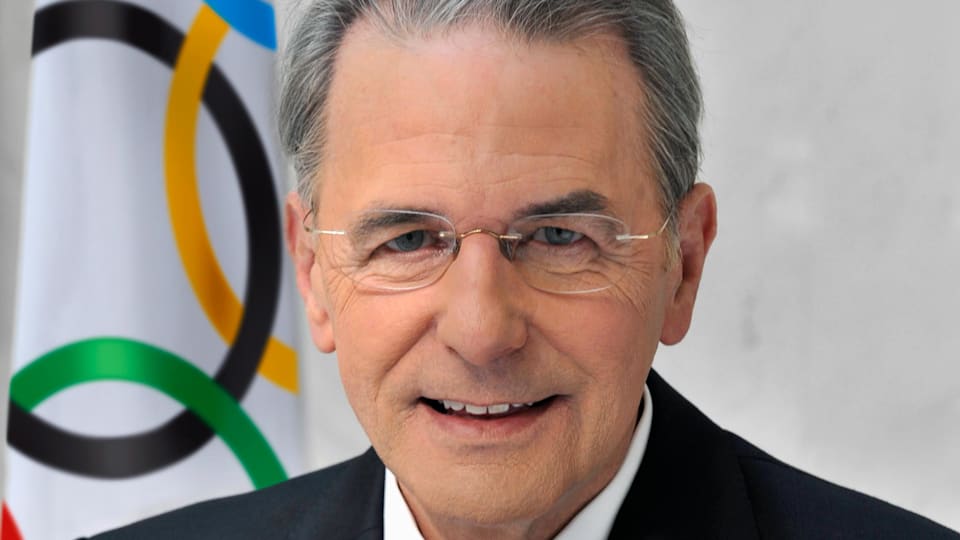Former IOC President Jacques Rogge passes away
The IOC Honorary President, who was President from 2001 to 2013, has passed away aged 79.

The International Olympic Committee Honorary President, Count Dr Jacques Rogge, has passed away aged 79.
Rogge was the eighth President of the International Olympic Committee, leading the organisation from 2001-2013.
The Belgian was an orthopaedic surgeon with a degree in sports medicine.
An accomplished sportsman, Rogge represented Belgium at three Olympic Games in Finn class sailing (1968, 1972, and 1976). He was also crowned world champion in 1976 and a 10-time rugby international for his country.
After his career as an athlete he became President of the Belgian Olympic Committee and European Olympic Committees, and also served as Special Envoy for Youth, Refugees and Sport to the United Nations after his tenure as IOC President.
Rogge oversaw Salt Lake City 2002, Athens 2004, Turin 2006, Beijing 2008, Vancouver 2010, and London 2012 as President.
Reflecting on Rogge's life, IOC President Thomas Bach said: “First and foremost, Jacques loved sport and being with athletes - and he transmitted this passion to everyone who knew him. His joy in sport was infectious.
“He was an accomplished President, helping to modernise and transform the IOC. He will be remembered particularly for championing youth sport and for inaugurating the Youth Olympic Games. He was also a fierce proponent of clean sport, and fought tirelessly against the evils of doping."
President Bach added: “Since we were elected as IOC members together we shared a wonderful bond of friendship, and this continued until his last days, when the entire Olympic Movement and I could still benefit from his contribution, in particular on the Board of the Olympic Foundation for Culture and Heritage.
“The entire Olympic Movement will deeply mourn the loss of a great friend and a passionate fan of sport.”
As a mark of respect, the Olympic flag will be flown at half-mast for five days at Olympic House, at the Olympic Museum, and at all IOC properties.
Career of Jacques Rogge
Born in Ghent, Rogge was a proud orthopaedic surgeon and implemented some of the skills he learnt as a doctor to his career as a sports administrator.
"From surgery I have got a much-needed sense of humility, of the uncertainty of life, of the frailty of every ambition," Rogge said in an interview with The Independent.
“What’s unusual for people in his position, with that kind of power, is that he just seems a thoroughly decent man.” — Olympic champion Jonathan Edwards on Jacques Rogge
Anti-Doping
Rogge led the Belgian Olympic team in the 1980s and eventually served as the President of the Belgian Olympic Committee from 1989.
He had faith in the anti-doping system and dedicated a lot of time and resources in the fight against doping during his time as IOC President.
“I always say doping is to sport what criminality is to society. We cannot stop people trying to cheat but at least we now have stringent doping controls in place,” said Rogge.
Developing the Olympic movement
While President of the European Olympic Committees, a position in which he served from 1989 until 2001, Jacques Rogge joined the IOC Executive Board in 1998.
In 2001, he became IOC President, replacing Juan Antonio Samaranch.
During his tenure the inaugural Youth Olympic Games, Rogge's brainchild, took place in Singapore in 2010.
The objective was to bring together the world’s best young athletes and introduce them to Olympism.
“These are the future stars, and we want to give them the possibility to compete at the highest level, while at the same time to benefit from the educational programme, the fight against doping, injury prevention – things that are very useful for developing athletes to know,” said Rogge.
As his term as IOC President came to a close, he was asked by the BBC what would be his legacy.
“That is for others to judge. But I definitely think the IOC is stronger now than when I took the job.”
